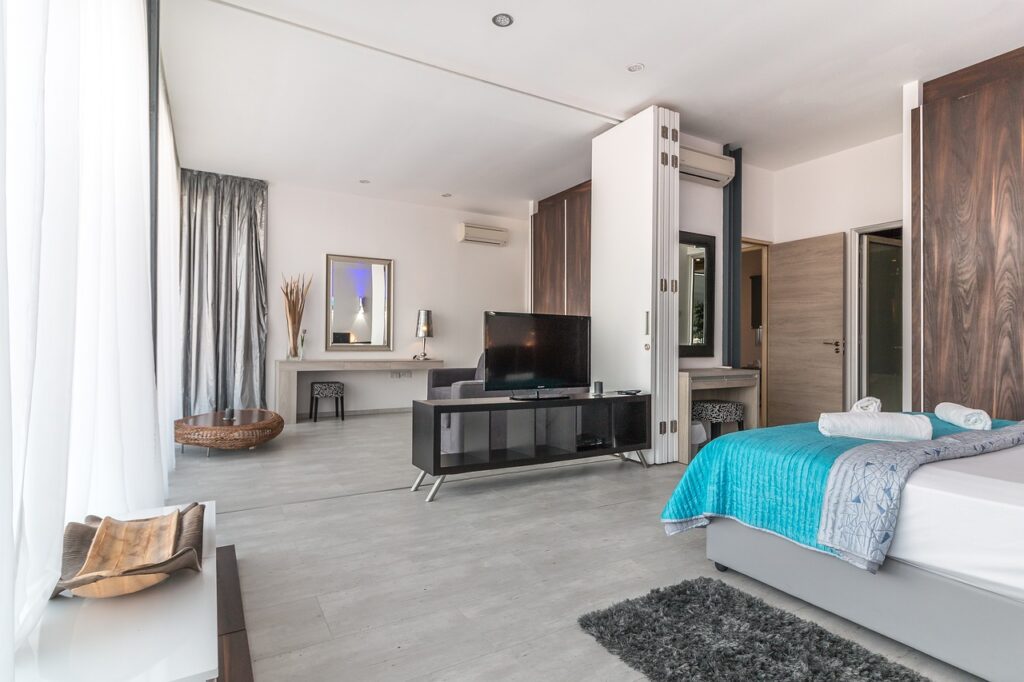Managing a villa—whether as a private retreat, long-term rental, or vacation property—can be incredibly rewarding but also presents a unique set of challenges. Achieving the perfect balance between maintenance, tenant relations, and effective property management requires careful attention to detail and proactive planning. Even with the best intentions, many villa owners fall into common mistakes that can lead to avoidable problems like legal issues, tenant disputes, or expensive repairs.
By learning to recognize and prevent these pitfalls, you can protect your investment, keep your villa profitable, and ensure a hassle-free experience. In this article, we’ll explore the most frequent mistakes in villa management and offer practical, actionable advice to help you maintain a well-run property, whether you manage it yourself or rely on professional assistance. Avoiding these missteps is key to ensuring your villa remains a cherished, well-maintained, and profitable asset.
Overlooking Regular Maintenance
One of the most frequent and costly mistakes in villa management is neglecting regular maintenance. Villas, particularly those in tropical climates, are exposed to the elements, which can accelerate wear and tear. Issues such as leaks, cracks, or faulty appliances can appear minor at first, but if left unresolved, they can quickly escalate into major repairs. Overlooking these problems not only diminishes the villa’s overall condition but can also disrupt tenant satisfaction and increase long-term repair costs.

Implement a Preventive Maintenance Schedule
To prevent unexpected and expensive repairs, it’s crucial to implement a comprehensive preventive maintenance schedule. This proactive approach involves regular inspections of essential systems such as plumbing, electrical wiring, and air conditioning units, all of which are vital to keeping the property functional and comfortable. By scheduling professional inspections at regular intervals, you ensure that small issues—like faulty wiring or leaks—are identified and addressed before they escalate. Understanding the importance of regular property maintenance can help prevent unexpected and expensive repairs.
Routine maintenance should also extend to the villa’s exterior. Roof inspections, window sealing, and outdoor space upkeep should be part of your ongoing strategy. This prevents water damage, structural problems, or deterioration that could impact the villa’s curb appeal and livability.
In tropical regions, pest control is another essential part of maintenance. Insects, rodents, and other pests can cause severe damage if left unchecked, particularly in a warm climate where they thrive. Regular pest control treatments not only protect the property from infestations but also ensure the health and comfort of tenants or guests.
Keep Track of Seasonal Needs
Villas located in coastal or tropical areas are especially vulnerable to the changing seasons. For instance, monsoon seasons often bring heavy rains and strong winds, which can damage a villa’s roof or overwhelm drainage systems. To avoid flooding or leaks, it’s important to check and clear drainage systems before the wet season starts, and ensure that the roof is free from potential weak spots or cracks.
During the hotter months, cooling systems become essential for tenant comfort. Regular maintenance of air conditioning units ensures they operate efficiently, reducing energy consumption and preventing sudden breakdowns. Failing to maintain cooling systems during these hot periods can not only increase electricity bills but also lead to tenant complaints or property vacancies.
By addressing these seasonal needs, you can safeguard your property, ensuring both comfort and durability. Staying ahead of the seasonal challenges specific to your villa’s location will protect against costly repairs and maintain a pleasant environment for tenants year-round.
Ignoring Legal and Regulatory Requirements
One of the most serious and often overlooked mistakes in villa management is failing to stay up-to-date with legal and regulatory requirements. Property management laws, tax regulations, and tenant rights vary significantly from region to region. Ignoring or misunderstanding these requirements can result in steep fines, legal disputes, or even the suspension of your property’s rental operations. Villa owners who neglect these aspects risk not only financial penalties but also damage to their reputation and property value.
Stay Updated on Local Property Laws
Every country or region has its own set of rules when it comes to villa management and long-term rentals. These laws can cover a wide range of issues, including rental agreements, security deposits, and tenant rights. It’s crucial for villa owners to remain informed about these local property laws to avoid falling into legal traps. Staying informed about legal compliance in property management is essential to avoid potential legal disputes and fines.
For instance, some regions impose restrictions on short-term rentals or have zoning laws that limit the types of properties that can be rented out to tourists. In other areas, landlords may be required to follow strict procedures regarding tenant eviction, or they may need to secure specific licenses to operate a villa rental business legally. Neglecting these requirements can lead to hefty fines, potential lawsuits, or the revocation of rental privileges, all of which can severely impact your bottom line.
To avoid legal complications, it’s wise to consult with local legal experts or hire a property management company familiar with the regulatory landscape. This proactive approach ensures that your villa is managed according to the law and helps prevent any unforeseen legal issues down the road.
Understand Tax Obligations
Another common mistake in villa management is overlooking or mismanaging tax obligations. Depending on your location, you may be required to pay a variety of taxes, including those on rental income, property taxes, and tourism-related taxes. Failure to comply with these tax obligations can lead to serious financial consequences, including fines, audits, or even legal action.
It’s important to understand which taxes apply to your specific situation. For example, some regions require villa owners to register their rental property as a business and collect taxes on each booking, while others may impose additional taxes for properties rented to non-residents or international tourists. Keeping track of these taxes and ensuring accurate, timely filing is critical to avoiding penalties.
Hiring a professional tax advisor or partnering with a property management company that understands local tax regulations can be a smart investment. These professionals can navigate the complex tax landscape, ensure that you remain compliant, and help optimize your financial strategy, allowing you to focus on other aspects of villa management. By staying on top of your tax obligations, you protect your investment and ensure the long-term success of your villa.

Poor Communication with Tenants
A major and frequent mistake in villa management is failing to maintain effective communication with tenants. Poor communication can result in misunderstandings, tenant dissatisfaction, or even legal disputes, particularly in long-term rentals or vacation stays. Whether your villa is occupied by tenants for weeks or years, establishing and maintaining clear, professional communication is crucial for fostering positive relationships, ensuring smooth operations, and avoiding conflicts.
Establish Clear Terms and Expectations
One of the best ways to avoid communication issues is to ensure that all terms and expectations are laid out clearly from the very beginning. The rental agreement should include detailed information about the rent payment schedule, maintenance responsibilities, and rules regarding property use. For instance, it should clearly state whether tenants are responsible for yard maintenance or who handles repairs for appliances. By clearly defining these responsibilities, you reduce the chances of misunderstandings that could lead to dissatisfaction or disputes.
Additionally, for long-term tenants, maintaining regular check-ins and open dialogue is key to preventing small issues from escalating. Addressing tenant concerns about the property promptly, such as maintenance requests or repair needs, helps build goodwill and reassures tenants that their comfort and satisfaction are a priority. Promptly responding to tenant concerns not only improves your relationship but also ensures issues are resolved before they cause significant damage or inconvenience.
Be Accessible and Responsive
In property management, being accessible and responsive to tenants is vital to maintaining positive relations and resolving problems quickly. Tenants should feel confident that they can easily reach you or your management team in case of urgent matters. Emergencies such as plumbing leaks, power outages, or security concerns require immediate attention, and delays in response can lead to tenant frustration or even property damage.
To ensure smooth communication, establish clear communication channels that tenants can use whenever necessary. Whether through email, phone, or a property management platform, having accessible methods for tenants to report issues or ask questions ensures that concerns are addressed promptly. Additionally, consider using automated systems for rent reminders or maintenance notifications to keep everything running smoothly.
Maintaining an open and responsive communication flow not only keeps tenants satisfied but also helps prevent small problems from escalating into larger, more costly repairs. A proactive approach to communication creates trust and ensures that your villa management remains smooth and efficient.

Failing to Screen Tenants Properly
Selecting the right tenants is a fundamental part of successful villa management, yet many property owners make the critical mistake of not thoroughly screening potential tenants. Renting to unreliable or problematic individuals can lead to numerous challenges, such as late rent payments, property damage, or ongoing disputes. Without proper screening, you risk endangering your property’s condition and your peace of mind.
Implement a Thorough Screening Process
A key strategy to avoid tenant-related issues is to implement a thorough tenant screening process. This process should include reviewing the rental history of potential tenants, verifying their income, and conducting background checks. Investigating a tenant’s rental history helps to confirm whether they have been responsible in previous leases, while verifying income ensures that they have the financial stability to meet rent obligations. Background checks provide added assurance that the individual does not have a history of behavior that could cause problems down the line.
While it might be tempting to fill a vacancy quickly, especially during peak seasons, rushing through the tenant selection process can lead to significant, long-term consequences. Without careful vetting, you might find yourself dealing with late rent payments, legal disputes, or significant damage to your villa. Taking the time to screen tenants thoroughly ultimately saves you time, money, and stress in the long run.
Request Security Deposits
Another crucial step in protecting your property is to always request a security deposit from tenants before they move in. A security deposit acts as a financial safeguard in the event that the tenant causes damage to the property or fails to meet their contractual obligations, such as paying rent or maintaining the villa in good condition.
The security deposit can cover costs associated with repairing damage beyond normal wear and tear, ensuring that the villa remains in good condition for future tenants. Additionally, having a deposit in place gives you leverage in the event of a dispute, providing you with the means to recover financial losses without resorting to legal action.
By ensuring a proper screening process and requiring security deposits, you set a strong foundation for managing your villa effectively and protecting your investment from unnecessary risks.

Inadequate Property Marketing
Even if you own a stunning villa, failing to market it effectively can result in long vacancies, reduced visibility, and missed rental income. Many villa owners underestimate the importance of investing in professional marketing strategies, which often leaves their property unnoticed in an increasingly competitive rental market. Ensuring your villa stands out and attracts potential tenants requires a combination of high-quality visuals, compelling descriptions, and diverse advertising tactics.
Use High-Quality Photos and Descriptions
To capture the attention of potential tenants, your villa listing needs to feature high-quality photos that highlight the property’s best features. Hiring a professional photographer is an investment that can significantly enhance the way your villa is presented online. Professionally taken photos can showcase key aspects like spacious interiors, unique architecture, scenic views, and luxury amenities such as pools, outdoor terraces, or lush gardens. High-resolution images create a positive first impression and help tenants visualize themselves living or vacationing at your property.
In addition to compelling photos, accompany your listing with a well-written description that emphasizes the villa’s unique selling points. Highlight the property’s proximity to popular attractions, such as beaches, restaurants, or cultural landmarks. Mention features that set your villa apart, such as ocean views, a private garden, or access to exclusive amenities. Your listing should tell a story and paint a picture of the lifestyle potential tenants can enjoy, rather than just listing rooms and square footage.
Advertise on Multiple Platforms
Relying on just one advertising platform is a common mistake that limits your villa’s reach. To maximize exposure and increase your chances of securing tenants quickly, it’s essential to advertise across multiple channels. List your property on popular vacation rental websites, real estate platforms, and relevant social media channels to reach different types of tenants. This diversified approach allows your listing to be seen by a wider audience, including vacationers, long-term renters, and even digital nomads looking for extended stays.
Additionally, using offline marketing methods such as partnering with local real estate agencies or placing ads in travel magazines can further increase visibility. By utilizing a mix of online and offline marketing strategies, you ensure that your villa rental gets the attention it deserves in a competitive market, helping you fill vacancies more efficiently and keep your rental income steady.
Hevearent: Comprehensive Villa Management and Long-Term Rental Solutions
We understand the challenges of managing a villa and the importance of keeping it well-maintained, profitable, and appealing to potential tenants. With years of expertise in villa management and a dedicated long-term rental portal, Hevearent offers a comprehensive solution tailored to the unique needs of villa owners.
Expert Villa Management Services
Our team at Hevearent provides end-to-end property management services designed to take the stress out of managing your villa. From implementing thorough tenant screening processes to handling regular maintenance schedules, we ensure that your villa is in top condition and consistently rented by responsible, vetted tenants. Whether it’s addressing repairs, ensuring compliance with local regulations, or managing tenant communications, we handle all the details so you can focus on enjoying the benefits of your investment.
Long-Term Rental Expertise
Hevearent specializes in finding the perfect tenants for long-term rentals, ensuring steady occupancy and rental income for your villa. Our long-term rental portal is designed to connect villa owners with high-quality tenants who are looking for extended stays, offering peace of mind that your property is well taken care of. We also provide personalized marketing strategies to showcase your villa’s unique features and attract the right audience, maximizing your rental potential.
Conclusion
Successfully managing a villa involves more than simply renting it out; it requires careful attention to details, proactive maintenance, and a clear understanding of both tenant needs and legal obligations. Avoiding common mistakes such as neglecting regular maintenance, failing to screen tenants properly, and ignoring legal requirements is key to maintaining a well-run and profitable property. Effective communication with tenants, thorough tenant screening, and robust property marketing strategies further ensure that your villa remains in high demand, avoiding long vacancies and costly repairs.
By implementing these best practices and staying informed about regional regulations, villa owners can create a positive rental experience, maintain a profitable investment, and ensure that their property remains in excellent condition over the long term. Managing a villa is about building a strong foundation for both financial success and tenant satisfaction, ensuring the longevity and value of the property.
FAQs
The most common mistake is neglecting regular maintenance. Skipping essential maintenance tasks can lead to costly repairs and damage over time.
It’s recommended to perform preventive maintenance at least quarterly, depending on the specific needs of the property and local climate.
Legal requirements vary by location, but they often include rental agreements, security deposits, and compliance with local property laws.
Tenant screening ensures that you choose reliable and responsible tenants, reducing the risk of late payments, property damage, or legal disputes.
Establish clear communication channels, such as email or an online management platform, and ensure that you’re accessible for emergencies or concerns.
Clear rental agreements and regular communication help set expectations and prevent misunderstandings that could lead to disputes.
Use high-quality photos, detailed descriptions, and list your villa on multiple platforms to maximize exposure and attract quality tenants.
Hiring a tax advisor or property management company can help you stay compliant with local tax laws and ensure you avoid penalties.
Yes, a security deposit protects you financially in case of property damage or if the tenant fails to fulfill their rental obligations.
Regular maintenance, professional photos, and advertising on multiple platforms will make your villa more attractive to potential tenants.
